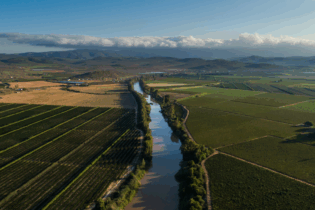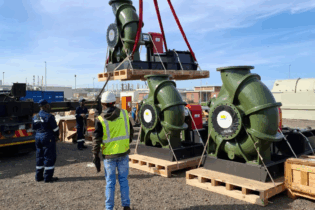National municipal benchmarking initiative
Local Government Water Services Authorities (WSAs) in South Africa have contributed significantly towards increased access to a wide range of basic and improved water services. Notwithstanding the progress made, this is set against the backdrop of an ongoing need to continue accelerating service delivery in order to meet inter alia the 2014 service delivery targets, and within an environment of growing development-driven water demand, as housing development and service upgrading accelerates. In order to seek sustainable provision of adequate, effective, efficient and safe water services, improved performance measurement and management will be crucial. Benchmarking is a structured, continuous process to both assess and improve one’s organisation’s performance and identify and adapt best practices from amongst one’s peers to own situation. Internationally, benchmarking has been shown to lead to substantial improvements in water services performance and water services delivery efficiencies; with associated economic benefits. With the maturing of South Africa’s water sectors regulatory tools it is now appropriate and possible to separate regulatory performance monitoring from more introspective municipal performance benchmarking; that is benchmarking for municipalities, by municipalities, to the benefit of municipalities. Accordingly, in mid 2011 SALGA and the Water Research Commission (WRC) initiated the re-establishment of municipal water services benchmarking. The municipal benchmarking initiative (MBI) will build on local and international learning, and seek to use water services benchmarking to provide a structure and process for municipalities to strive for continual and significant performance improvement, while also being able to harness the experience of their peers to make the most efficient use of available resources to improve service delivery and customer services. The project is supported through a professional team, including as team members, both IMESA and eThekwini Water Services, and importantly also comprises a voluntary group of municipal benchmarking ambassadors and champions.
The MBI aims to:
• Support improved efficiency and effectiveness in water services delivery through comparative performance benchmarking, peer-to-peer knowledge sharing and iterative performance improvements.
• Strengthen performance measurement, monitoring and management in municipal water services provision, while recognising and affirming the distinctiveness of each municipality’s challenges and strength.
• Build peer group based communities of practice within and between municipalities.
• Forge relationships of mutual respect and trust between municipalities and the project support team which strengthen the development of performance tracking, reporting and comparative assessment systems.
Phase 1: design of benchmarking process via consultation with core WSAs
Phase 2: initiation amongst all WSAs
Phase 3: institutionalisation and consolidation across WSAs and the water sector
Phase 4: iterative and ongoing strengthening of municipal performance assessment and improvement. Currently, the project is busy with Phase 2. Key progress to-date includes:
• brief “dip stick” analysis of the current state of WSA performance reporting
• alignment to local and international benchmarking initiatives and regulatory efforts
• development of themes/modules and Performance Indicators (PIs) for 2012 (pilot year)
• IMESA 2011 pre-conference benchmarking workshop
• linkage to the city water managers forum and development of strategies for peer group interactions
• launching of peer learning based Water Services Master Classes, through partnering with eThekwini’s Municipal Institute of Learning (MILE)
• establishment of municipal peer learning groups
• initiation of benchmarking initiative sustainability model
• development of the benchmarking web-based system. The first MBI facilitated Municipal Water Services Master Class: #1 peer based learning interaction took place in Durban over 14 and 15 February 2012. Technical themes comprised product quality (Blue Drop and Green Drop) and water loss and demand management. Some 60 senior technical municipal officials participated in the municipal case study based peer learning process, which used a critical issues analysis methodology to identify performance improvement opportunities. Similar classes will be held in Gauteng and Cape Town, and a new topic theme will be launched every second month. An observation from the master class attendees was that, in addition to the efforts of the project sponsors (SALGA & WRC), the benchmarking ambassadors and champions, and the project team, success will be dependent on the interest, commitment and involvement from municipalities and the supportive involvement and alignment from key municipal and water services sector groups. If these can be put in place then the MBI can with time lead to substantial breakthrough improvements in water services delivery in South Africa.






